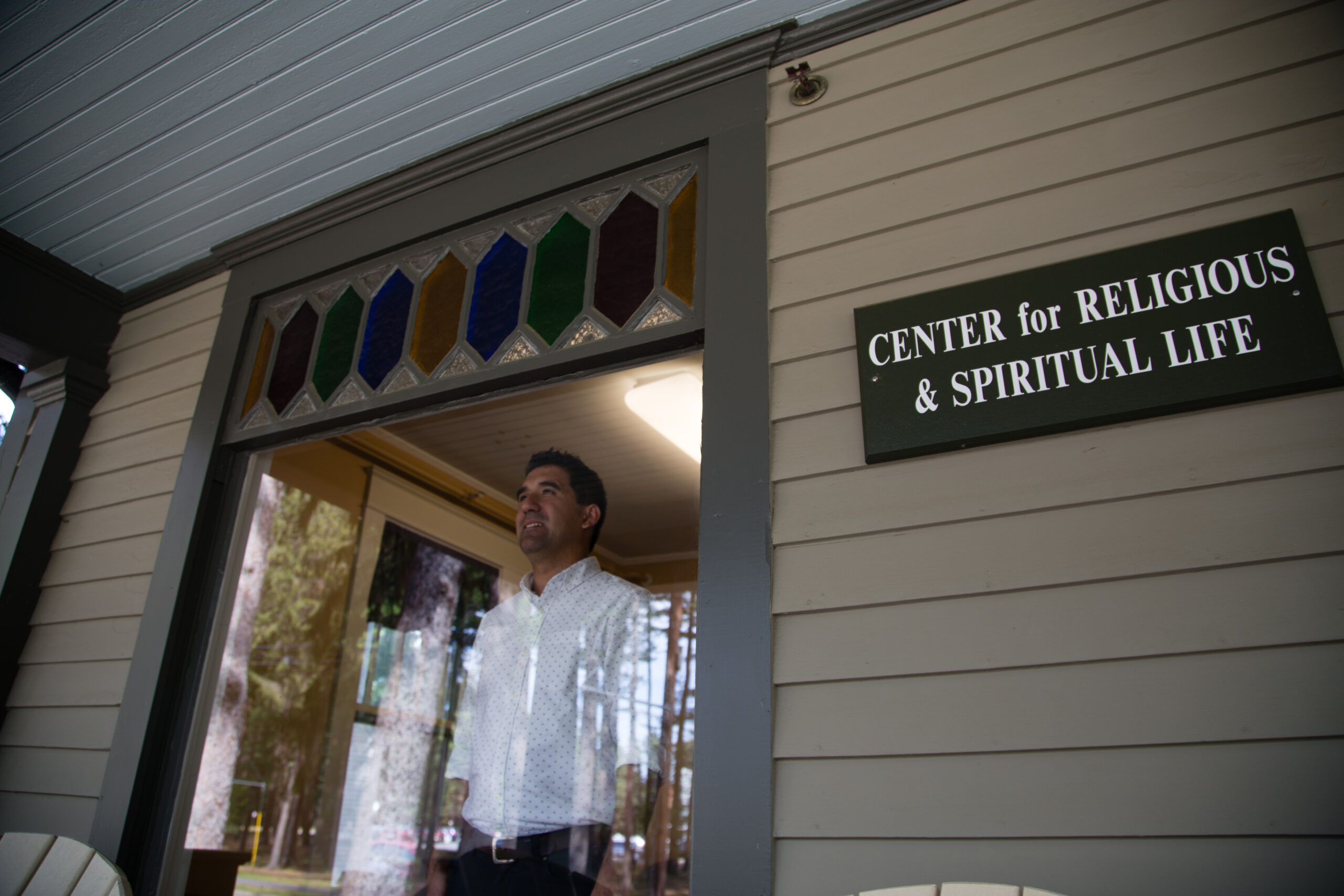Multifaith Fellowship to facilitate discussion on campus
October 18, 2018
 Sam Honegger
Sam HoneggerDirector of Religious and Spiritual Life at Bowdoin Eduardo Pazos Palma believes the study of religious traditions can help with understanding many issues that grip the increasingly globalized world. Pazos Palma wants to initiate this conversation with a new Multifaith Program at Bowdoin.
Once a week, four carefully selected students from culturally diverse backgrounds will have the opportunity to sit down and discuss faith with the objective of generating a dialogue about issues that are often deemed too uncomfortable or personal.
“The purpose of the fellowship is to create a program on campus where students are able to learn about the major world religions,” Pazos Palma said. “Each student is going to read portions of sacred texts, as well as engage with some local clergy members representing the diversity of religions and faiths in the Brunswick area.”
Out of a pool of 29 applicants, the four students chosen each gave a different explanation as to how faith plays a role in their lives. Lucas Johnson ’22 cited faith as a driving force behind his desire to positively impact the lives of those around him; Abigail Wu ’21 praised faith for the purpose it provides to her life; Caleb Perez ’20 described faith as a lens through which he views the world, and Nick Suarez ’21 does not consider himself a person of faith, but he grew up in a Catholic household and is interested in how faith shapes society.
While discussing his role as a fellow, Johnson mentioned the lack of a conversation surrounding religion on Bowdoin’s campus.
“By helping our community … gain greater knowledge into the religions they have not been exposed to prior to their time here, we are all going to get a better understanding and appreciation of each other,” Johnson said.
Johnson became interested in cultural and religious diversity after growing up in the culturally and religiously diverse city of Charlottesville. It was this interest that prompted him to found a program which connects refugees in Charlottesville with long-time citizens in order to facilitate greater connection between groups that may at first appear to have little in common.
“Faith is important to me because it grounds me in the idea and the belief that my actions will not only carry a great weight for myself, but for those around me,” Johnson said. “I always believe that more than ever we have to recognize that our personal compasses are not only helping ourselves, but our entire society as a whole … and that is why I follow faith with such conviction.”
Wu, who also identifies as a person of faith, shares similar views with Johnson.
“I would say that faith is important to my life … because it allows me to feel like there’s a purpose,” Wu said.
For Perez, religion takes on a different role in his life. Despite not identifying with a particular faith tradition, Perez says religion is very present in his life. Not only does he study religion at Bowdoin, but he also utilizes it to help him make sense of the world around him.
“It’s very much a lens through which I see the world, but that’s a conscious decision because that’s the lens I think you should see the world through,” Perez said. “So for me, I think it’s a really fantastic academic thing for me to look at because it touches and interweaves with so many other things.”
Suarez, has had varying degrees of involvement in faith throughout his life. Raised in a Catholic household, he stopped going to church because it began to feel like something he was “forced to do.” Last year, however, Suarez reignited his relationship with faith.
“I took a very interesting course called Gender in the Middle East that was about Islam, and I learned a lot about a religion that’s commonly misunderstood in our society today, so that really peaked my interest,” Suarez said. “I wanted to kind of get more into thinking about religion and getting to talk more about it.”
These sentiments are what Pazos Palma hopes to bring together at Bowdoin. While he believes each fellow will be able to engage with the broader community during the second semester, the current meetings focus on opening up a dialogue and fostering understanding among the cohort.
“The purpose is not to determine who is right or who is wrong on their beliefs, the purpose is to take our time to read and learn what other people think and value as they engage with their world,” Pazos Palma said.

Comments
Before submitting a comment, please review our comment policy. Some key points from the policy: